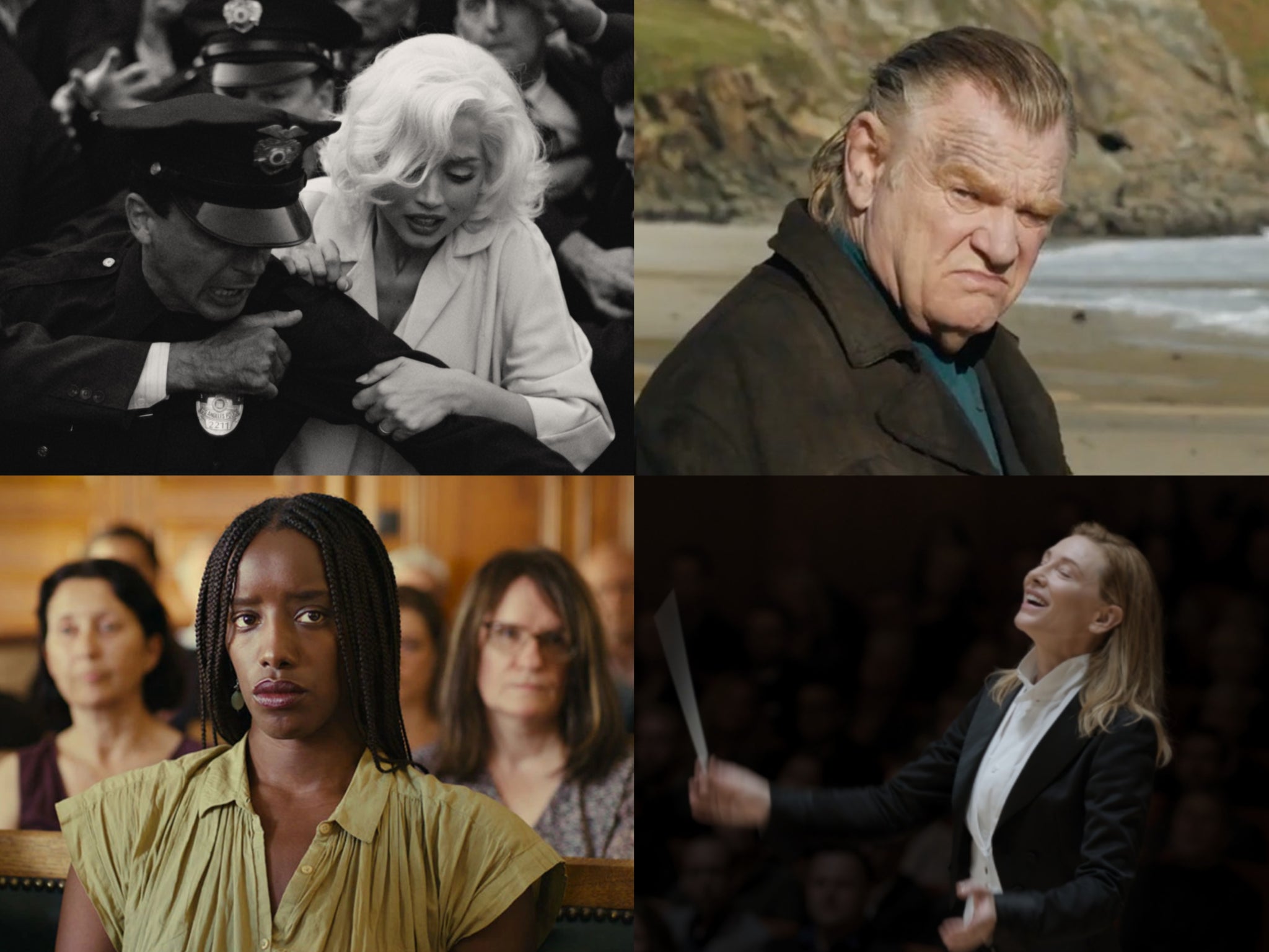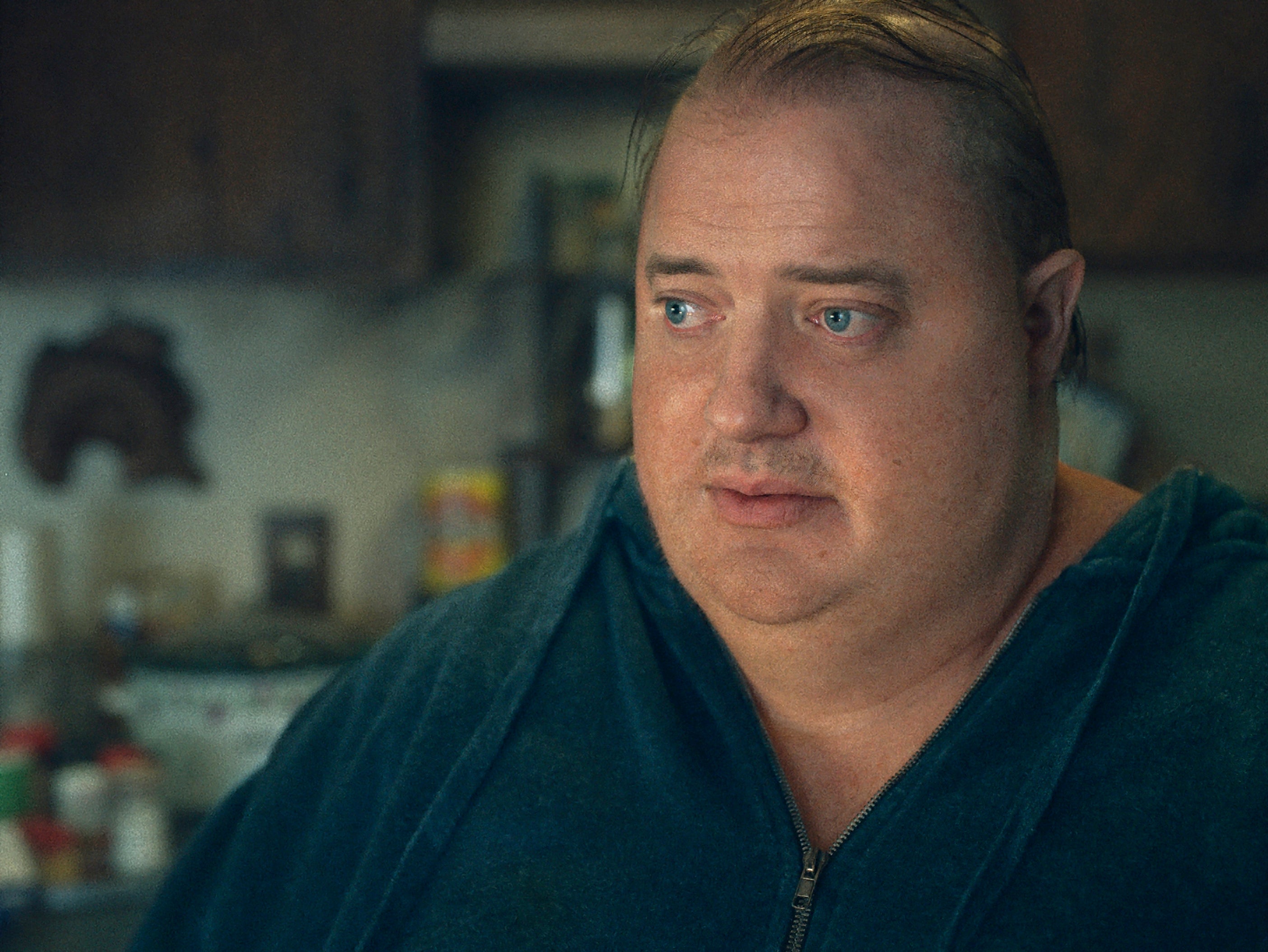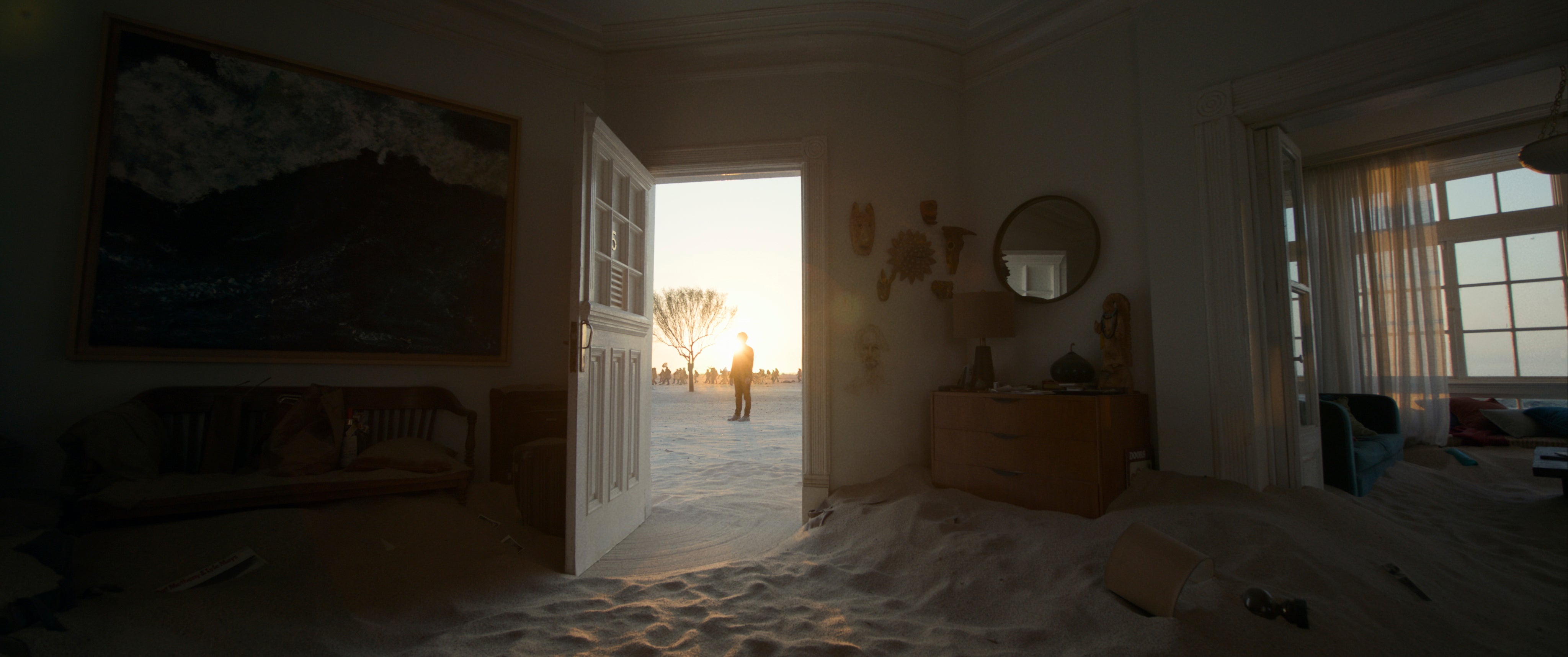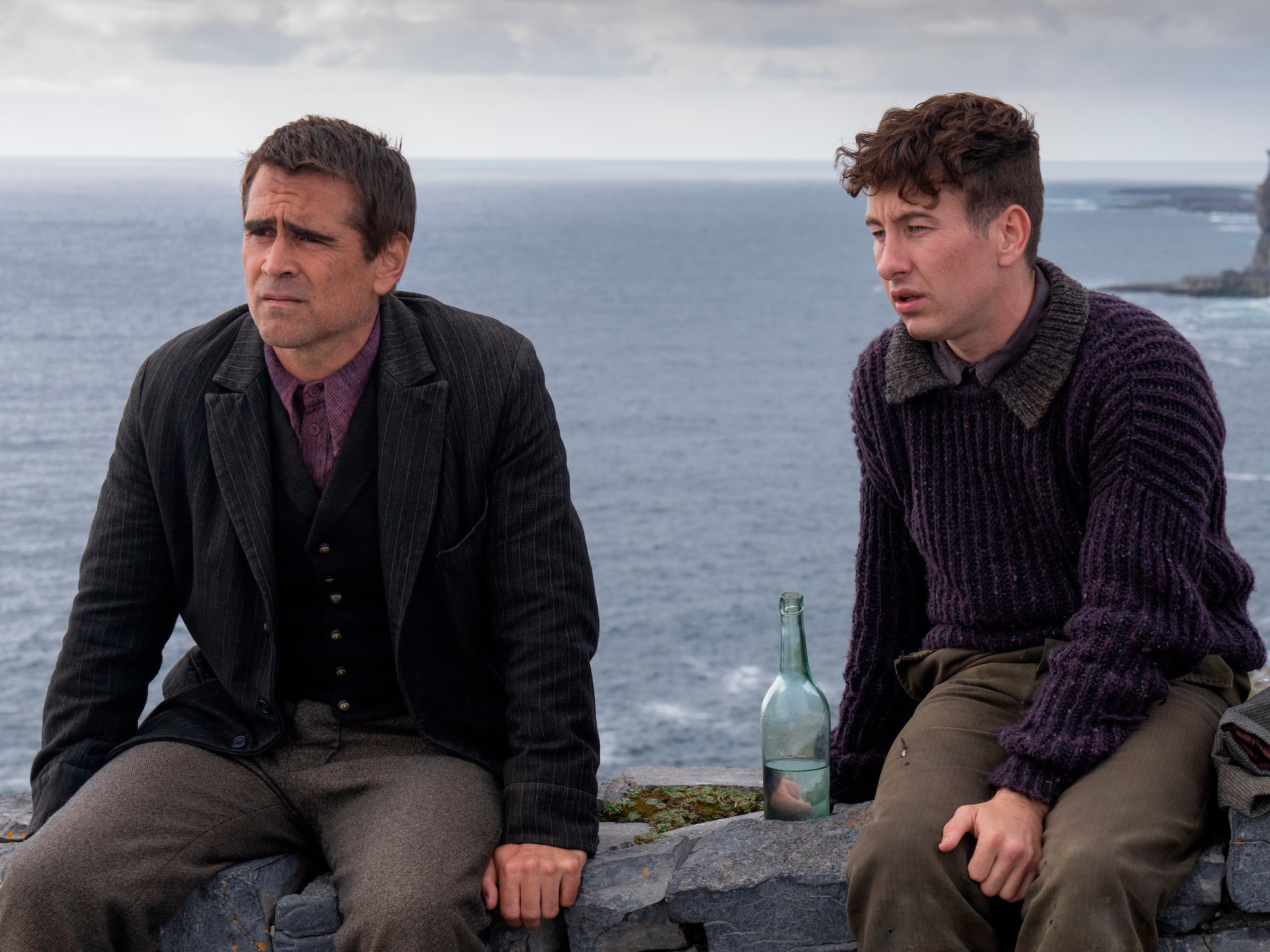Venice Film Festival round-up: From a tangled and pretentious Don’t Worry Darling to the effective tearjerker The Whale
This year’s festival may have enjoyed its share of tabloid hulabaloo – but the most engaging drama still happened on screen, writes Geoffrey Macnab

Now, at the venerable age of 90, Venice is the oldest major film festival in the world. Founded in 1932, the event is still held on the balmy, beach-filled island of the Lido and has a faded elegance that other events such as Cannes and Berlin simply can’t emulate. In the 1930s, the controversies tended to be political. The main award was called The Mussolini Cup. There were furious rows over movies like Jean Renoir’s Grand Illusion, later banned in Italy for being too left wing, and German director Leni Riefenstahl’s Olympia, which many saw as Nazi propaganda.
The 2022 edition has had plenty of talking points, too, but this time not to do with fascism. Olivia Wilde’s Don’t Look Now, which landed on the Lido midway through the festival like some dangerous UFO with Harry Styles inside, provoked a media feeding frenzy thanks to all the lurid advance reports of feuds and affairs during shooting. Wilde’s film wasn’t in competition and isn’t in the running for The Golden Lion, which was announced on Saturday. A pretentious dystopian thriller with a very tangled plot, it wouldn’t have won anyway. That honour went to Laura Poitras’s documentary All the Beauty and the Bloodshed, while imprisoned Iranian director Jafar Panahi won the Special Jury Prize for No Bears and the Silver Lion went to French director Alice Diop for her courtroom drama, Saint Omer.
Documentaries don’t usually even make it into the main Venice competition let alone win it, but All the Beauty and the Bloodshed is stirring, angry and very moving. The film explores how artist/photographer Nan Goldin “took down” the Sacklers, the billionaire American family behind OxyContin, the highly addictive drug which killed tens of thousands during the opioid crisis. It also looks at Goldin’s life: the suicide of her sister, her experiences of addiction and sexual harassment – and the fearless way she confronts her own demons in her work.
Goldin’s campaign has led to a host of British, as well as American, museums cutting their ties with the Sacklers. “[But] the director of the V&A has kept his allegiance to the Sacklers,” Goldin told me. The V&A, then, is one of the few major cultural institutions that hasn’t yet shaken off its dependency on Sackler cash or scrubbed the family’s now toxic name from its walls.
All the Beauty and the Bloodshed is both an intimate portrait of an artist and a campaigning documentary with a strong polemical thrust. With her Golden Lion behind her, Poitras, who has already won one Academy Award, for her Edward Snowden documentary, Citizen Four, is bound to be in the running for another. Many other titles screening over the past 10 days could also have carried off the main prize in what was an unusually rich programme, full of potential Oscar contenders.
The most striking performance was from Cate Blanchett, whose best actress award surprised no one. She was imperious as the female opera conductor in Todd Field’s Tar. When it comes to playing headstrong and emotionally vulnerable Clytemnestra-like characters, she has few equals. Field’s film is very long. At times, as we see Blanchett’s Lydia Tar, conducting the Berlin-based Philharmonic or giving exhaustive on-stage interviews to New Yorker journalists, the approach seems dry and scholastic. However, the film develops a searing emotional charge as Lydia’s life begins to unravel. She risks being “cancelled” because of politically insensitive remarks she makes to students. Her haughty treatment of young women who work for her provokes a furious backlash.
Beyond Gena Rowlands as the theatre star close to breakdown in John Cassavetes’s Opening Night, it’s hard to think of any other portrayals of female artists under strain that reach the same pitch of ferocious intensity that Blanchett achieves here. She truly is the maestro.
Almost as powerful, but in a very different register, was Penelope Cruz in Italian director Emanuele Crialese’s coming-of-age drama, L’Immensita, set in 1970s Rome. Cruz plays Clara, a middle-class wife and mother with an abusive husband. The story is seen from the point of view of her eldest daughter Andrea, who yearns to be a boy. Cruz’s character is child-like herself, a playful, free-spirited woman being ground down by a patriarchal system. As in her melodramas with Pedro Almodovar, Cruz retains her glamour regardless of the blows she receives. The film itself is scattershot and uneven but its Spanish star is as magnetic as ever.
Another very impressing turn from a female lead came from Tilda Swinton in Joanna Hogg’s ghost story/family psycho-drama, The Eternal Daughter. Swinton plays two roles – an artist/filmmaker and her elderly mother. Together, they go to stay in a Fawlty Towers-like country house hotel that, many years before, was the mother’s childhood home. Hogg uses all the familiar haunted house tropes – mist, wind, doors that creak, faces seen fleetingly at windows. The plotting is a little contrived, with a strong whiff of M Night Shyamalan’s The Sixth Sense or Alejandro Amenabar’s The Others. Even so, The Eternal Daughter is still a very moving affair. Swinton excels in her dual role. As the older woman, she looks disconcertingly like the pianist mother played by Ingrid Bergman in Autumn Sonata – and like Bergman, she brings huge pathos to the part.

Watch Apple TV+ free for 7 day
New subscribers only. £9.99/mo. after free trial. Plan auto-renews until cancelled.
ADVERTISEMENT. If you sign up to this service we will earn commission. This revenue helps to fund journalism across The Independent.

Watch Apple TV+ free for 7 day
New subscribers only. £9.99/mo. after free trial. Plan auto-renews until cancelled.
ADVERTISEMENT. If you sign up to this service we will earn commission. This revenue helps to fund journalism across The Independent.
The festival opened with Noah Baumbach’s Don DeLillo adaptation, White Noise. This was subversive, dark and funny. It boasts arguably Adam Driver’s finest screen performance yet as Jack Gladney, the brilliant professor specialising in Hitler studies at a small town US university. Jack is confronted with a series of ever more apocalyptic events. Driver plays him in wonderfully laidback fashion, facing down each fresh catastrophe with a casual shrug.

Driver put on a little weight to play the part but nothing like the layers of fat that cover Brendan Fraser in The Whale, Darren Aronofsky’s chamber piece about an ailing, morbidly obese man stuck in his apartment, trying to expiate the guilt he feels over his treatment of those closest to him. The premise may not sound enticing but this turned out to be an effective tearjerker.
There were some duds. Florian Zeller’s The Son was strangely unmoving in spite of its subject matter. This is the story of a troubled teenage boy, Nicholas (Zen McGrath), drifting closer and closer to despair and suicide. His father, a prominent lawyer (Hugh Jackman), is married to his second wife (Vanessa Kirby) and has a baby child with her. Nicholas, though, has never forgiven him for walking out on his first wife Kate (Laura Dern). He has begun self-harming and has played truant from school for months. His parents are helpless to protect him as he slips inexorably toward the abyss. Many parents and adolescents will relate to the story but Zeller tells his grim story in such schematic and predictable fashion that its emotional kick is very faint.

Mexican director Alejandro Gonzalez Inarritu’s Bardo is an attempt to make a deeply personal portrait of the artist in the vein of Federico Fellini’s 8 1/2 or Paolo Sorrentino’s autobiographical movies. Formally, it is a tour de force, full of elaborate travelling shots like the ones Iñárritu used in Birdman. While it’s brimming with magical realist flights of fancy, it is also horribly self-indulgent – a rambling three-hour epic about a Mexican documentary maker (Daniel Gimenez Cacho) who lives an incongruously lavish Dolce Vita-style existence and whose only real obsession is himself.
Most of the British films were well received. Bill Nighy received a standing ovation for his performance as the Mr Benn-like businessman in 1950s London who discovers he has only six months to live in Oliver Hermanus’s Living. Italian audiences are sometimes baffled by British emotional restraint but they loved the wonderfully quirky and self-effacing way Nighy played Mr Williams, trying to squeeze out some joy and fulfilment from his last few weeks of life. The film was screening out of competition having already shown in Sundance. (Its scriptwriter, novelist Kazuo Ishiguro, was on the festival jury.)

The Venice audience also enjoyed Georgia Oakley’s debut feature Blue Jean, set in the northeast of England during the 1980s (the dark days of Margaret Thatcher and Section 28) and about the travails of a lesbian PE teacher (the very striking, Jean Seberg-like newcomer Rosy McEwen). Strangely, this was one of several films in Venice that featured either Joy Division or New Order music. Luca Guadagnino made effective use of the former in his cannibal road movie, Bones and All, a gory but exquisitely made and very romantic affair starring Timothee Chalamet and Taylor Russell (who won the Best Young Actor award) as the lovers with an appetite for raw flesh.
Guadagnino, who picked up the best director award, emerged from Venice with his reputation yet further enhanced. So did Martin McDonagh thanks to his magnificent new tragicomedy, The Banshees of Inisherin (which won best screenplay). Set on a remote island during the Irish Civil War of the 1920s, the film reunites Colin Farrell and Brendan Gleeson, who also appeared together as the odd couple in McDonagh’s In Bruges and could well become Irish cinema’s very own answer to Jack Lemmon and Walter Matthau. They play neighbours and former best friends, Padraic and Colm. Now, Colm has decided he doesn’t actually like Padraic. Both actors are superb (Farrell won best actor) in a film that manages to be mordantly funny while also making subtle points about everything from the nature of male friendship to the causes of political strife.

Outside the main competition, there were also some gems. Israeli director Guy Davidi’s poetic but quietly devastating documentary Innocence looked at how young Israelis are forced into military service at the age of 18, regardless of their temperaments or beliefs. Davidi doesn’t use voice-overs or interviews. Instead, he relies heavily on journals, diaries and video footage from some of the young military recruits who didn’t survive their ordeal.
Unlike Cannes, which still regards Netflix and Amazon as a mortal threat to the future of cinema, Venice has no qualms about showing new movies financed by the streamers. This means it gets films like White Noise and Andrew Dominik’s Marilyn Monroe polarising biopic Blonde whose star Ana De Armas wept after receiving a 14-minute standing ovation at the premiere. While other festivals were capsized by the pandemic, Venice sailed blithely onward. Its 2020 and 2021 editions continued almost as normal, as physical events, albeit with fewer visitors. This year, the Lido was again packed to bursting point. Aspects of the festival rankle. The organisers are so obsessed with red carpet glamour that you suspect they sometimes invite films more on account of their star wattage than their aesthetic accomplishments. Even so, if you want to catch a first sight of next March’s likely Oscar winners, Venice is still the place to come.
Join our commenting forum
Join thought-provoking conversations, follow other Independent readers and see their replies
Comments


Bookmark popover
Removed from bookmarks